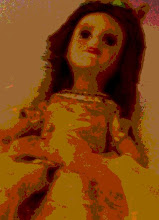I guess he didn’t want any advertising for his book because the paragraphs about them wouldn’t copy, but you can read those bits at http://www.concatenation.org/articles/hocking~science~sf.html. They weren’t the bits that interested me, anyway, as much as his clear misunderstanding of the quotes he included in his write up.
“Science fiction comes in so many flavours that defining 'science fiction' is problematic. One aspect of our understanding of SF is that it should be technically accurate.
But is this more important than the story? Should it be compromised to tell a story? asks author and psychologist Ian Hocking” is the blurb at the start of the story.
Ian Hocking makes some good points about the value of some degree of accuracy, and the often misleading results when journalists misrepresent medical findings and translate it into incorrect or misleading advice to their readers (A relationship may not be cause and effect). (Scientists would like to see some of the same correctness in science fiction, knowing that science fiction readers often become science students and ultimately scientists, and benefit from realistic portrayals of current science knowledge.)
“But should science fiction be held to such standards?” he counters, “I would argue not. Because, first and foremost, the responsibility of a storyteller is to tell a story. If the storyteller is primarily concerned with edification -- rather than letting this grow organically from the story -- then an alternative form of dissemination, such as the essay or the documentary, might be more appropriate.”
Hocking further explains: “Perhaps SF is seen as too challenging. My own view, however, is that science fiction is commonly conceived as tedious unless one is interested in gadgets, time paradoxes, poor characterization and the willfully obscure. As an SF writer, I would not agree that this conception is an accurate one, but it does appear to describe the common reaction.”
His further arguments, however, take on a rather sideways perspective. Hocking uses a quote by Ben Bova from an essay on the Cassandra Effect in SF, where Bova assesses that few people read SF because “Perhaps the problem lies with the visual entertainment media: movies and TV. Let's face it, most of Hollywood's "sci-fi" has its origins in comic strips, not actual published science fiction. Many people don't realize that the "sci-fi flicks" on both big and small screens are a far cry from the intellectual and emotional depth of real science fiction.”
Hocking says of this: “I find this problematic in the context of creating fiction. A story is a series of moments that, through the interactions of their meaning, create emotions in the reader. Intellectual depth, it would appear, works at a level incommensurate with the story. Sure, we can be entertained by a bit of techno-jargon, we can go 'Ahhh,' when the author explains how a nifty camouflage suit can lower the wearer's refractive index to zero, rendering them invisible. But this not the story. It is, yes, part of the support structure of the story, but it represents a reduction of forward motion while what the reader should really care about - the characters and what happens to them - is put on hold.”
In my view, Ian Hocking has missed Bova’s point entirely. Hocking equates “intellectual” with technobabble, just because sometimes the technobabble is technically correct and well-researched. I accept that technostuff, accurate or totally made-up, can be problematic, that the story should take priority, and that technobabble) can just slow the story down and discourages readers who have no interest in gadgetry. it’s a problem not exclusive to science fiction, either: look at the spy tales of Clancy). He argues reasonably that “You shouldn't have to be interested in the space stuff to an enjoy an SF story any more than you need to have an intrinsic interest in African territorial jurisdiction to enjoy Casablanca.”
But Hocking misses the point that intellectual and technobabble have nothing to do with each other and may even be contradictory, if the technology stuff is handled badly. A little bit of technology and a lot of ethics, social, or emotional questions surrounding the use of the specified technology and its impact on individual lives--all the makings of “intellectual depth”-- can be the meat of a genuinely good story. No technobabble is needed beyond character’s understandable and realistic dialog. Tolkien put a lot of work into researching the Lord of the Rings and the story is enriched by the language and legends portrayed, truly an intellectual work in many respects, but LoR isn’t an academic study in the those languages and legends, the inclusion as part of the lives of the characters doesn’t make the tale harder to read, and yet the reader still wants “Frodo to reach Mount Doom and you worry for the tragic figure of Gollum.”
Hocking does offer some good advice, even if he got there through a sideways logic: “I guess I've come to this conclusion through the editing process. I've learned that what makes a scene good isn't the tech; it's the meaning conjured by the characters, their struggles, the conflict, and the wider narrative. When working to improve a piece of fiction, you can fiddle with the meaning (I'm using this word in a broad sense that encompasses 'emotion', 'affect', 'interest' and so on) or you can fiddle with the technical stuff. At the end of the day, it's the sharpening of meaning that improves the work by any real margin.”
Subscribe to:
Post Comments (Atom)

The problem is technobabble for technobabble's sake. If the gizmos are the center of the show, the show will suffer. Only when the gizmos are presented as part of the character's life will they help the story along and not slow it down.
ReplyDelete